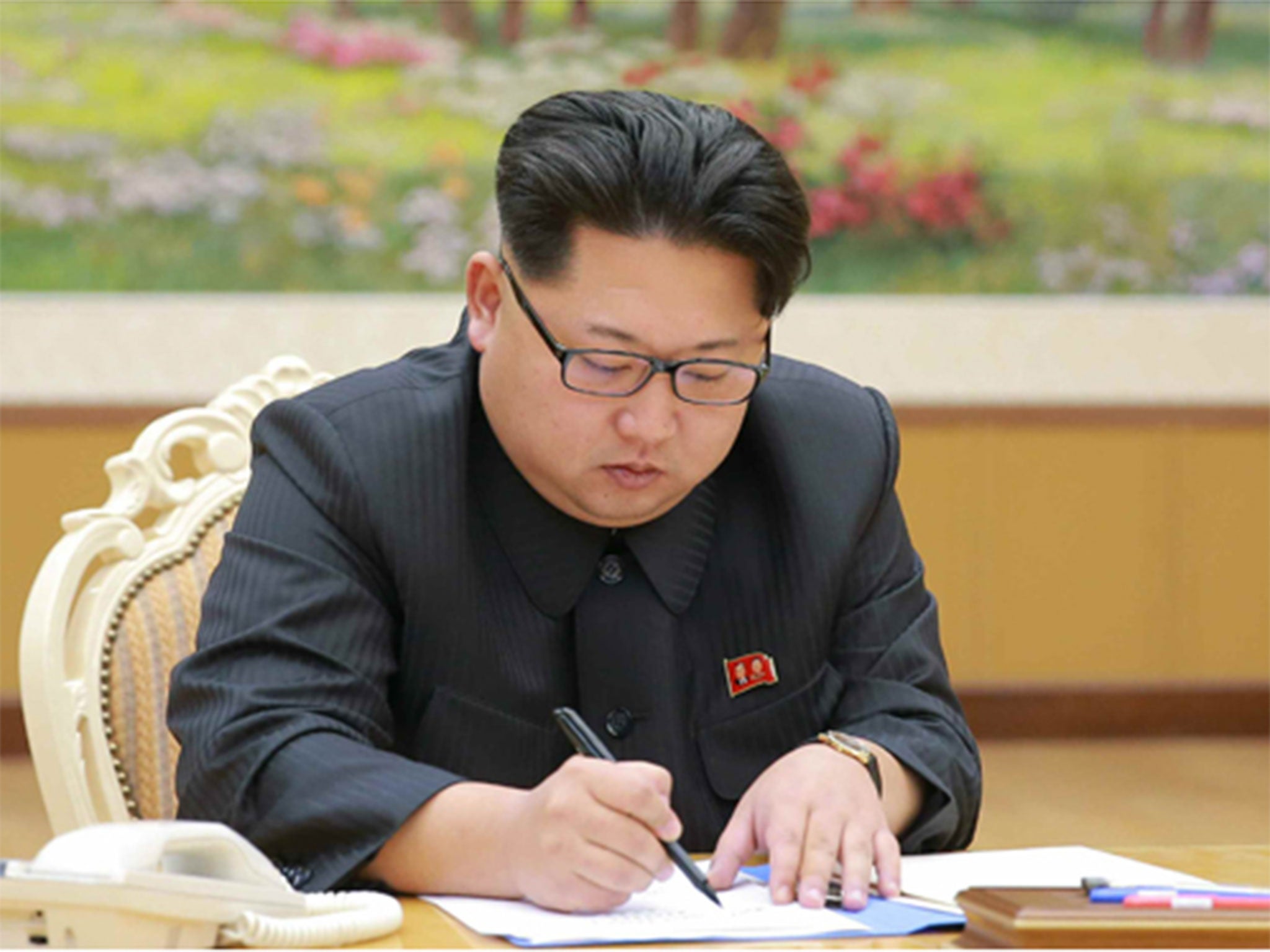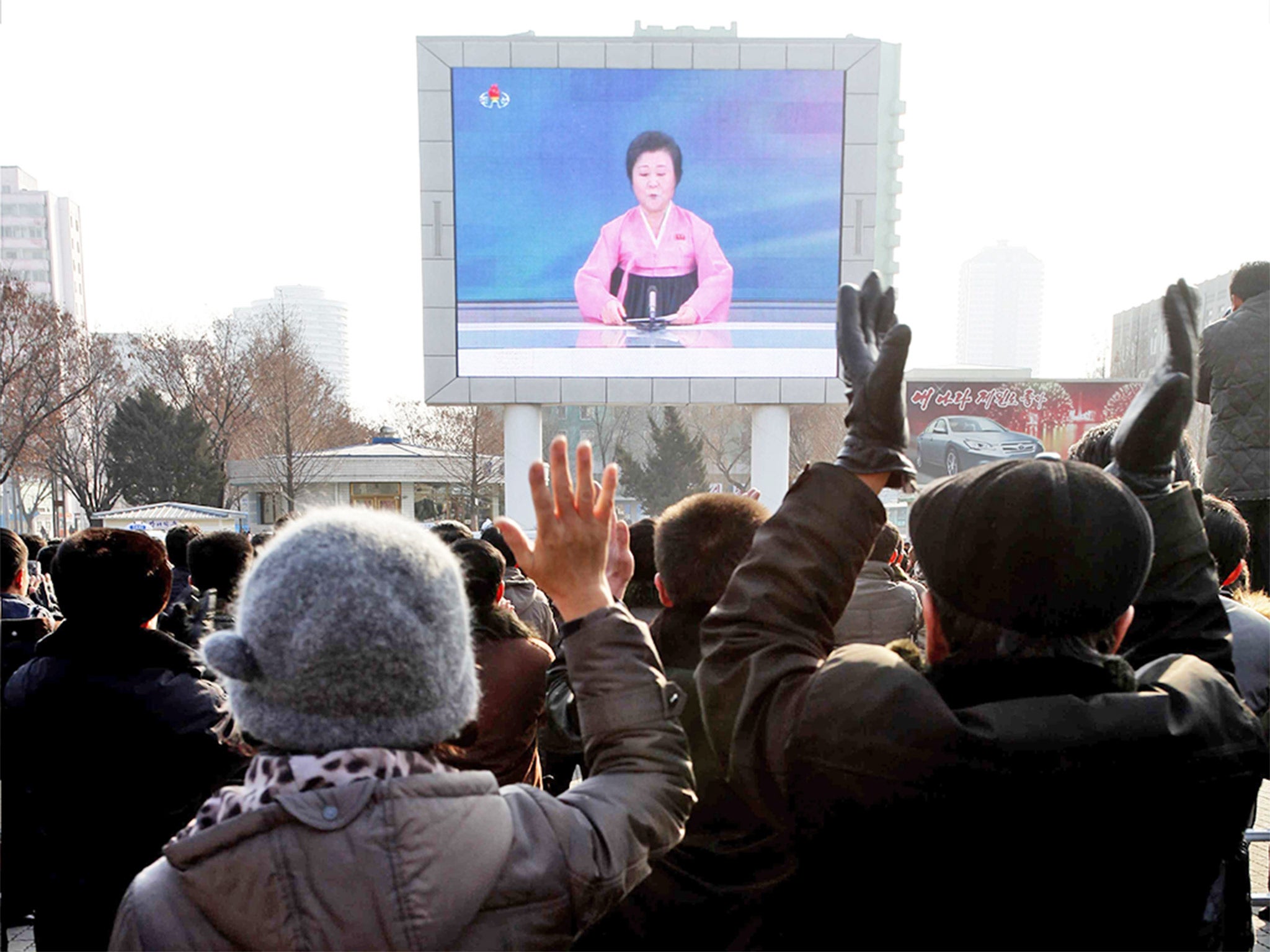North Korea nuclear test: How Kim Jong-un justifies detonating a hydrogen bomb
The government in Pyongyang claims it successfully tested a thermonuclear device, calling it 'a great stride' for the country

North Korea has claimed to have carried out a successful hydrogen bomb test, prompting condemnation from leaders around the world.
South Korea announced on Thursdayit will retaliate against the claimed thermonuclear test by restarting propaganda broadcasts on loudspeakers across the border, something Kim Jong-un’s government has previously described as an act of war.
Seoul has joined with the US and Japan in pledging a united response against North Korea’s actions, while the UN Security Council is expected to take action.
International observers say seismic tests show a large explosion of some kind likely took place, but that it fell well short of the sort of yield to be expected from a genuine hydrogen bomb, the most powerful kind of weapon ever created by mankind.
On Thursday, the state-run Rodong Simnun news agency carried a statement from the North Korean government justifying the test. It read as follows:
“There took place a world startling event to be specially recorded in the national history spanning 5 000 years in the exciting period when all service personnel and people of the DPRK are making a giant stride, performing eye-catching miracles and exploits day by day after turning out as one in the all-out charge to bring earlier the final victory of the revolutionary cause of Juche, true to the militant appeal of the Workers' Party of Korea (WPK).
“The first H-bomb test was successfully conducted in Juche Korea at 10:00 on Wednesday, Juche 105 (2016), pursuant to the strategic determination of the WPK.
“Through the test conducted with indigenous wisdom, technology and efforts the DPRK fully proved that the technological specifications of the newly developed H-bomb for the purpose of test were accurate and scientifically verified the power of smaller H-bomb.
“It was confirmed that the H-bomb test conducted in a safe and perfect manner had no adverse impact on the ecological environment.
“The test means a higher stage of the DPRK's development of nuclear force.
“By succeeding in the H-bomb test in the most perfect manner to be specially recorded in history the DPRK proudly joined the advanced ranks of nuclear weapons states possessed of even H-bomb and the Korean people came to demonstrate the spirit of the dignified nation equipped with the most powerful nuclear deterrent.
“This test is a measure for self-defence the DPRK has taken to firmly protect the sovereignty of the country and the vital right of the nation from the ever-growing nuclear threat and blackmail by the US-led hostile forces and to reliably safeguard the peace on the Korean Peninsula and regional security.”
The statement goes on for another 14 paragraphs, describing the US as “a gang of cruel robbers” and a pack of “ferocious wolves”. The regime vowed to “escalate its nuclear deterrence”.

What is a hydrogen bomb?
Because of the way that they are made, hydrogen bombs are usually much more powerful than less advanced atomic bombs.
Both are kinds of nuclear armaments, but the way they release energy is different. While atomic bombs use nuclear fission, which splits a bigger atom into two smaller ones, to create their energy, hydrogen bombs use fusion, which is done by fusing two or more atoms into a bigger one.
Hasn’t North Korea tested nuclear bombs before?
Because of the way that they are made, hydrogen bombs are usually much more powerful than their atomic counterparts.
That is why people are so worried about North Korea’s announcement — it has already launched atomic bombs, but this is the first time that it has tested a hydrogen one.
North Korea did its first known nuclear test in 2006, and has done two more since. Initial measurements suggest Wednesday’s detonation was on a similar scale to the last in 2013 – but Pyongyang has said it tested a “miniaturised” device.
Join our commenting forum
Join thought-provoking conversations, follow other Independent readers and see their replies
Comments
Bookmark popover
Removed from bookmarks